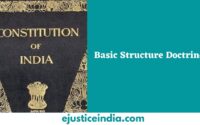Legal aspects of Home Quarantine
Legal aspects of Home Quarantine
Author : Abhay Pratap
Before understanding what ‘Home Quarantine’ means and Legal aspects of Home Quarantine, we must understand what Quarantine means. Quarantine is the state in which a person, animal or anything is isolated from their normal day to day life style and restriction is put on them regarding their movements and indulgence with any other person, animal or thing. Quarantine is done when any person, animal or thing gets infected and there’s a threat for the infection to spread to others.
When the Quarantine is performed in home it is known as Home Quarantine. This is not a new thing to be quarantined. Doctors have been telling patients to home Quarantine themselves in cases where patients can infect others. For e.g. in cases of common cold, chicken pox etc. patients are told to home quarantine themselves.
THE EPIDEMIC DISEASES ACT, 1897 (ED) and THE INDIAN PENAL CODE,(IPC) 1860 are two mainly legislations that deal with Home Quarantine.
Section 2(1) of the ED Act gives power to the state government to prescribe the regulations that are to be followed by the public or by any person or class of persons if the state government is satisfied that the state or any part of the state is visited by or threatened with an outbreak of any dangerous epidemic disease and there is no ordinary law to consider the situation.
Section 2(2) of the ED Act prescribes the regulations for which the state government may take measures, these are : ‘the inspection of persons travelling by railway or otherwise, and the segregation, in hospital, temporary accommodation or otherwise, of persons suspected by the inspecting officer of being infected with any such disease.’
Section 2A of the ED Act empowers the central government to prescribe the regulations, for the inspection of any ship or vessel leaving or arriving at any port in India and for detention thereof or any person intending to sail therein or arriving thereby, it is satisfied that India or any part thereof is visited by or threatened with an outbreak of any dangerous epidemic disease and there is no ordinary law to consider the situation.
Quarantine and Home Quarantine is performed and regulated under these sections of ED Act. On the violation of the regulations prescribed for Quarantine or Home Quarantine or any order made under the ED Act, section 3 of the ED Act deems such violation or disobedience an offence which shall be punishable under section 188 of IPC.
Section 188 of IPC says that if any person disobeys any direction, regulation or order made by a public servant who is lawfully empowered to promulgate such order, regulation or direction shall be punished with simple imprisonment which may extend to 6 months, with fine which may extend to 1000/- rupees or with both if such disobedience causes or to tends to cause danger to human life, health or safety. There is no necessity that the offender must have mens rea i.e., intention to cause harm. It is sufficient that the offender had knowledge of such order, direction or regulation and that disobedience of such order, direction or regulation produces or is likely to produce harm.
Any person having knowledge of the order or directions as to the regulations of the Home Quarantine disobeys such order/directions shall be punished under section 188 of IPC and punishment for the same can be extended upto 6 months of simple imprisonment or 1000/- rupees fine or both.
There are various other provisions in IPC that govern Home Quarantine. We will be discussing them one by one.
1) Section 268 of IPC talks about Public Nuisance. It says that any person who acts or does an illegal omission which causes any common injury, danger or annoyance to the public or to the people who live nearby shall be guilty of Public Nuisance. It also includes those acts and illegal omissions which are not causing any danger, injury or annoyance to the public but they may if any person uses his public right.
If any person has been ordered or directed to follow the regulations and guidelines to Home Quarantine and if such person does not obey the order then such person would be causing danger to the public and therefore, such person shall be guilty of Public Nuisance.
2) Section 269 of IPC, it says that if any person does an negligent act which he knows or has reason to believe that such act is likely to spread the infection of any disease dangerous to life shall be punishable with imprisonment which may extend upto 6 months or with fine or with both.
Any person who has been ordered to stay in Home Quarantine and if such person does any act that may spread the infection of the disease which is dangerous to life, for e.g., a COVID-19 +ve patient who has been ordered to stay in Home Quarantine and if he comes out of the home and meets with people even after he has knowledge of his act and its consequences, he can be booked under section 269 of IPC.
3) Section 270 of IPC, this is similar to section 269 of IPC but the difference is that a person must act malignantly which means he must act which is of evil and grave nature and punishment in this section differs, too with that of section 269. In this section any person found guilty shall be punished with imprisonment which may extend upto 2 years or with fine or with both. For the application of this section also, such a person must know or at least must have reason to believe that such a malignant act is likely to spread the infection of disease which is dangerous to life.
For e.g., A person who is COVID-19 +ve who knows about his disease and is also aware of the spreading nature of the disease sneezes and coughs near the mouth of any other person without a mask can be said to have committed offence of section 270, IPC.
Sections 268, 269 & 270 of IPC cannot be said to have direct connection with Home Quarantine rather they are more likely to be of the nature of offences which are linked with diseases and its spread. But they are connected with Violation of Home Quarantine because the purpose of sections 268, 269 & 270 is same as of Violation of Home Quarantine i.e., to punish those who become the reason for the spread of deadly disease.


